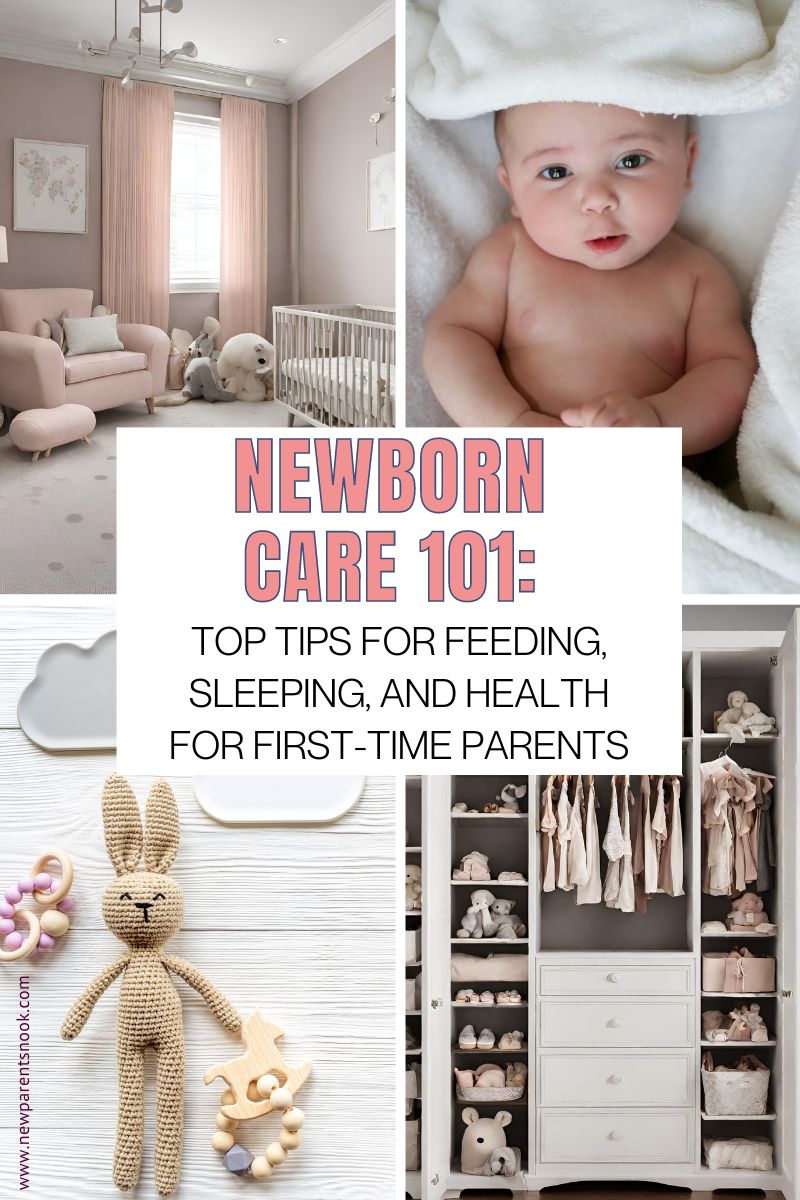Some links on our blog are affiliate links, meaning at no extra cost to you, we may earn a commission if you purchase through them. We participate in the Amazon Affiliate Program, and we recommend products we believe in. Your support helps us keep providing valuable content. Thank you!
Caring for a newborn is a journey filled with love, joy, and a steep learning curve.
For new parents, understanding the basic needs of your little one is the first step toward ensuring their health and well-being.
Here’s a comprehensive guide to what your newborn needs:
Feeding: A Round-the-Clock Commitment
Newborns need to be fed every 2-3 hours, whether you’re breastfeeding, formula feeding, or using a combination of both. This frequent feeding supports their rapid growth and development. It’s essential to follow cues from your baby and consult with a lactation consultant or pediatrician if you encounter challenges.
Sleep: A Fragmented Necessity
Expect your newborn to sleep a total of 14-17 hours per day, broken into short intervals. Creating a safe sleeping environment is paramount. This means placing your baby on their back to sleep in a crib that meets safety standards, without loose bedding or soft toys.
Diapering: A Constant Cycle
Be prepared to change your baby’s diaper roughly 10 times daily. Keeping the diaper area clean and dry is crucial for preventing diaper rash, an uncomfortable condition for your little one.
Clothing: Comfort and Adaptability
Dress your newborn in comfortable clothing, suitable for the current temperature. Opting for layers can make it easier to adjust their outfit to ensure they’re neither too hot nor too cold.
Healthcare: Regular Check-ups
Schedule regular visits with a pediatrician to monitor your baby’s growth, development, and to stay on track with vaccinations. These appointments are a great opportunity to discuss any concerns you may have.
Bathing and Skin Care: Gentle and Infrequent
Newborns don’t require daily baths, but it’s important to keep them clean. Use gentle, baby-specific products to care for their sensitive skin and avoid irritation.
Comfort and Soothing: The Art of Calmness
Newborns seek comfort and soothing through swaddling, gentle rocking, and calming sounds. These techniques can help soothe your baby and promote sleep.
Safety: A Priority
Creating a safe environment is essential. This includes using a car seat correctly, ensuring a safe sleeping area, and keeping potential hazards out of reach.
Love and Attention: The Foundation of Development
Physical contact, cuddling, and interaction are not just comforting for your baby but are also crucial for their emotional and psychological development.
Learning and Stimulation: The Seeds of Growth
Even in these early stages, gentle stimulation through talking, reading, and playing soft music can support your baby’s development.
Remember, every baby is unique, and these needs may vary. Trust your instincts, and don’t hesitate to reach out to healthcare professionals with any concerns or questions. The journey of parenthood is filled with learning and growth, not just for your baby, but for you as well.
Newborns require several basic needs to ensure their health and well-being:
- Feeding: Newborns typically need to be fed every 2-3 hours. This can be breast milk, formula, or a combination of both, depending on the situation and preference.
- Sleeping: Newborns sleep a lot, typically 14-17 hours a day in short bursts. It’s important to ensure they sleep in a safe environment, such as on their back in a crib without loose bedding.
- Diapering: Expect to change a newborn’s diaper around 10 times a day. Keeping the diaper area clean and dry is essential to prevent diaper rash.
- Clothing: Newborns should be dressed comfortably, not too hot or cold. Layers are helpful to easily adjust to different temperatures.
- Healthcare: Regular pediatrician visits are important for monitoring growth and development and for vaccinations.
- Bathing and Skin Care: Newborns don’t need daily baths, but it’s important to keep them clean. Their skin is sensitive, so use gentle, baby-specific products.
- Comfort and Soothing: Newborns need comfort and soothing. This can include swaddling , gentle rocking, and calming sounds.
- Safety: Ensure a safe environment, including a safe sleeping space, using a car seat properly, and keeping the baby away from hazards like small objects and water.
- Love and Attention: Newborns thrive on love and attention. Physical contact, cuddling, and interaction are crucial for emotional and psychological development.
- Learning and Stimulation: Even at a very young age, gentle stimulation like talking to the baby, reading, or playing soft music can be beneficial.
Remember, every baby is different, so these needs might vary slightly. If you have specific concerns or questions, it’s always best to consult with a healthcare professional.

Parents gazing lovingly at their baby, who is cradled gently in one of their arms. This image convey the deep emotional connection and joy of the family’s first moments together with their new member, emphasizing the themes of love, care, and familial bonding.







